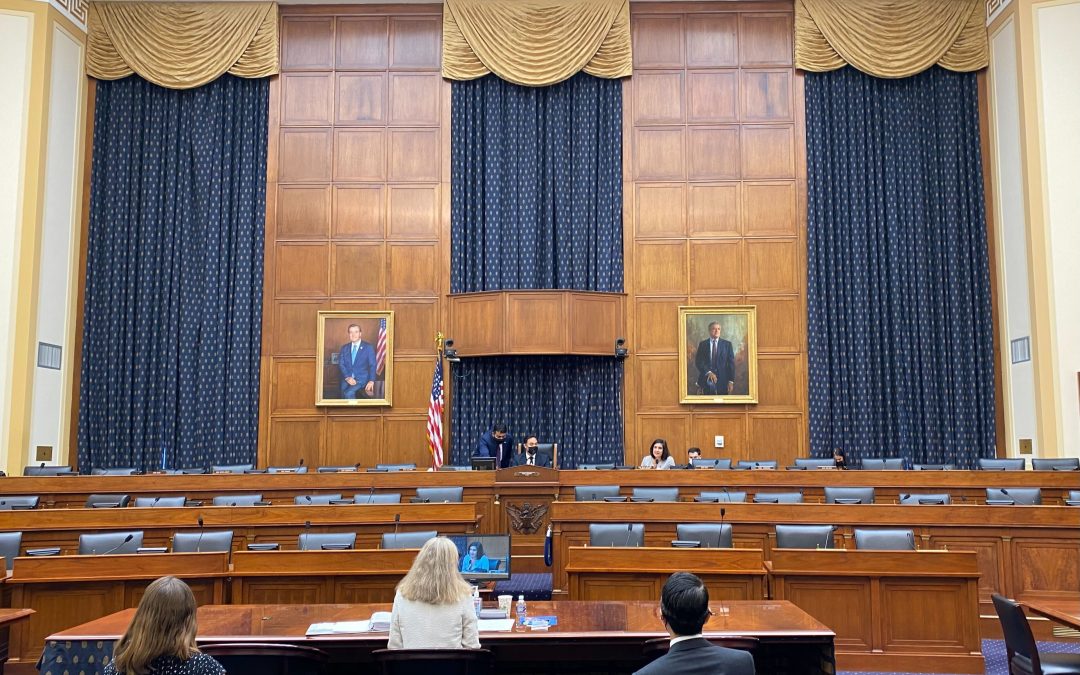WASHINGTON — The United States needs a strategy for upcoming elections at several key international organizations, lawmakers said Thursday during a House Foreign Affairs subcommittee hearing on U.S. leadership in the United Nations.
The last U.S. administration approached U.N. elections without a clear strategy, and without coordination with key allies, said subcommittee Chairman Rep. Joaquin Castro, D-Texas.
Elections will be held in 2022 for leadership positions at the International Telecommunications Union, the World Health Organization, the International Labour Organization and others.
Under the Biden administration, the U.S. is re-engaging with international institutions and organizations that the Trump administration removed itself from, like the WHO and the U.N. Human Rights Council.
“We have rejoined the Paris Agreement, we’ve recommitted to the World Health Organization, and we’ve been reelected to the Human Rights Council,” said Ambassador Erica Barks-Ruggles, senior bureau official at the State Department’s Bureau of International Organization Affairs.
“U.S. leadership in the U.N. system involves more than simply signing on to existing institutions or reengaging with U.N. bodies,” Barks-Ruggles said. “We are leading with the power of our example, rekindling old alliances and forging new partnerships.”
Barks-Ruggles told lawmakers that part of reinforcing the efficacy and mission of the U.N. is ensuring that capable, independent “U.S. and like-minded” officials and personnel are elected to it and other international institutions.
Barks-Ruggles and several lawmakers expressed support for the candidacy of American Doreen Bogdan-Martin for Secretary-General of the International Telecommunications Union, which coordinates and sets global standards for information and communication technology, such as satellite, radio, internet and telephone services.
Bogdan-Martin currently serves as the director ITU’s Telecommunication Development Bureau, and was the first woman to hold a top elected management position at the organization. If elected, Bogdan-Martin would become the first woman in the ITU’s 156-year history to lead the body. Her opponent is Russian candidate Rashid Ismailov.
Bolstering Bogdan-Martin in her fight against Ismailov is a top priority, Barks-Ruggles said. Bogdan-Martin’s U.S. representation would “help expand universal connectivity and uphold an open and multi-stakeholder approach to internet governance, against state-led models urged by some authoritarian nations.”
The U.S. agenda heading into the upcoming elections should include revitalizing the international community and “countering the efforts of countries such as the People’s Republic of China and Russia to reshape and undermine international law, institutions and standards,” Barks-Ruggles said.
Rep. Nicole Malliotakis, R-N.Y., discouraged U.S. participation in certain international organizations without concrete reforms. “The United Nations and other international organizations more broadly often oppose our national interests.”
The U.S. contributes almost a quarter of both the regular and peace-keeping budgets at the U.N. — but according to Malliotakis, those contributions aren’t reflected in influence.
Malliotakis also called the U.N. Human Rights Council “a fundamentally corrupt body with a track record of protecting dictatorships and covering up the crimes of the world’s worst human rights abusers.”
Other lawmakers expressed similar concerns about needed reforms, corruption and what Rep. Chrissy Houlahan, D-Penn., called “the increased influence of authoritarian countries.”
Throughout questioning, Barks-Ruggles maintained the importance of U.S. reengagement in international organizations.
“We must ensure that the U.N. system, as a key global platform in all of these efforts, is strong and resilient, and able to uphold the fundamental values of democracy, justice, transparency and respect for individual human rights,” Barks-Ruggles said.
U.S. leadership important in international elections | U.S. leadership important in international elections

